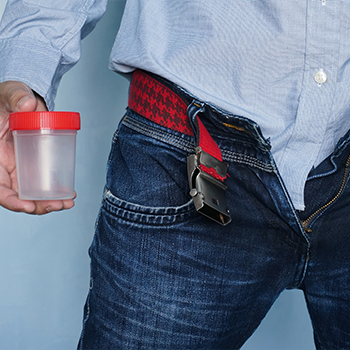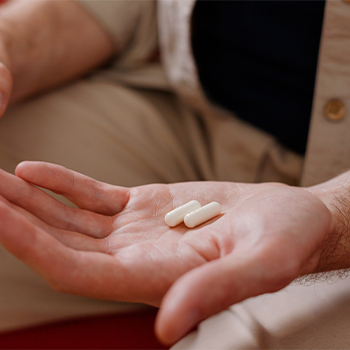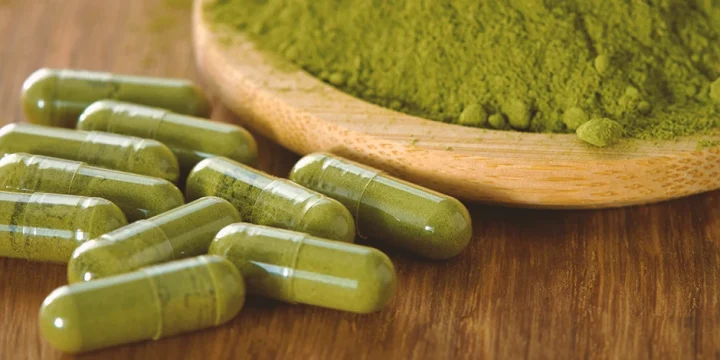Given the increasing use of testosterone supplements today, many men are discussing fertility issues.
I worked as a health and fitness trainer for athletes and bodybuilders for almost a decade.
Since we regularly use testosterone supplements, I was interested in the scientific basis of the idea that these supplements affect sperm count, so I decided to do some research.
So, if you are thinking of taking T supplements, I invite you to read this article first.
Quick Summary
- Testosterone boosters can affect sperm count because of the temporary suppressive effect that the hypothalamus and pituitary gland receive, ensuring that the testicles work well.
- Taking natural testosterone-boosting supplements like turmeric, Vitamin C, or D-aspartic acid supplements can solve your low testosterone problem.
- According to Havard Medical School, testosterone treatments have been linked to serious health issues, including gynecomastia, allergic reactions, and increased clotting.
- Based on my experience, a balanced approach combining natural supplements and lifestyle changes can be the most effective strategy for managing testosterone levels and fertility.
What Is The Role Of Testosterone In Sperm Production?
The role of testosterone in sperm production is to work in conjunction with the Follicle-stimulating Hormone (FSH) and Luteinizing Hormone (LH) to stimulate the production of sperm.
The pituitary gland produces FSH and LH. The Luteinizing Hormone stimulates testicles to secrete testosterone.
Testosterone then works with FSH to produce sperm cells. When these hormones are in balance, effective sperm production is achieved.
Does Taking Testosterone Supplements Decrease Sperm Production?

Although taking testosterone supplements can decrease sperm production, that may not always be the cause.
When the body is exposed to external testosterone, the hypothalamus and pituitary gland receive signals indicating that the testicles are functioning well.
Because of this suppressive effect, research by the Translational Andrology and Urology asserts that testosterone synthesis in the testicles, results in lower sperm production and fertility rates [1].
Nonetheless, researchers believe that there is no conclusive evidence linking testosterone supplements and low sperm counts and that more research is needed to back up this claim.
Testosterone Supplements and Infertility

Based on anecdotal reports from some of my clients, most men who seek infertility treatment are often on prescription testosterone supplements.
And in most cases, when they discontinue with testosterone, they experience a boost in sperm production.
However, it is yet to be proven scientifically if T supplements are the cause of low sperm density.
Post you may like: Does Pre-workout Affect Male Fertility?
Nonetheless, research suggests that men should avoid testosterone supplements until they have had biological children.
"This has become a preventable cause of infertility."
- Dr. Peter Kolettis, Professor of Urology at the University of Alabama at Birmingham
Another research by the Journal of Human Reproductive Sciences suggests that many cases of male fertility problems result from “male factor” infertility, which includes one or a combination of a low number of spermatozoa, poor sperm motility, and abnormal morphology [2].
What To Consider Before Taking Testosterone-Boosting Supplements?

Drawing from my work with athletes and bodybuilders, I recommend doctor consultation before using testosterone supplements.
Men often use these supplements to appear younger and combat the psychological effects of low testosterone and fertility issues, which can lead to stress and self-esteem problems.
However, exogenous testosterone might lower natural testosterone levels, causing hair loss, reduced libido, and muscle mass loss.
Research indicates potential long-term risks to sexual health and vital functions like heart and bone health [3].
These supplements can also interact with other medications, affecting organs like the liver and kidneys.
Managing low testosterone with a healthy diet, regular exercise, and quality sleep is advisable as conditions typically arise with age.
What Is The Best Way To Increase Sperm Concentration And Boost Male Fertility?
The best way to increase sperm concentration and boost male fertility depends on your current medical condition and personal preference.
After consulting your doctor, you can choose whether to increase your testosterone levels naturally, take T supplements, or follow other recommended fertility treatments.
Testosterone Replacement Therapy (TRT)

As a fitness trainer, I've observed that fertility specialists often recommend TRT for symptomatic hypogonadism or age-related low testosterone.
Studies suggest testosterone sprays and pellets might lead to infertility faster than gels and steroids.
TRT, typically involving skin patches or gels for daily application, is considered safer, allowing direct absorption of testosterone, as WebMD reports [4].
Contrasting with anabolic steroids' high hormone content, TRT employs smaller doses for balanced hormone levels.
Both TRT and T boosters aim to alleviate low testosterone symptoms like fatigue and libido issues.
T boosters, viewed as a natural option, enhance blood testosterone bioavailability and spermatogenesis with vitamins, zinc, and adaptogens, according to MedicineNet [5].
Human Chorionic Gonadotropin (HCG)

Couples undergoing in vitro fertilization or facing conception difficulties might use human chorionic gonadotropin (HCG) to boost testosterone without harming sperm production.
A National Institutes of Health study showed HCG improves semen quality, especially motility and morphology[6].
As an FDA-approved medication, HCG is mainly prescribed for fertility treatments.
HCG isn't approved for over-the-counter use or as a weight loss solution. When TRT is insufficient for fertility, HCG serves as an alternative.
Research in Sage Journals shows it aids in androgenization and may prevent infertility and testicular issues linked to external androgens [7].
Sometimes, doctors prescribe HCG alongside T products.
Other Medications For Low T Levels

Doctors may prescribe Letrozole, Clomiphene, and pituitary hormone injections to elevate testosterone levels, though these are off-label uses.
Infertile men should track hormonal levels and semen quality, as these drugs can disrupt hormonal balance and potentially reduce semen volume.
Note that I'm not qualified to give medical advice; my recommendations are for informational purposes and based on research.
Natural Testosterone Boosting Supplements

According to Havard Medical School, testosterone treatments have been linked to serious health issues, including gynecomastia, allergic reactions, and increased clotting [8].
In my years of training athletes, I've come to learn that alternative therapies and holistic approaches, such as acupuncture, herbal supplements, and lifestyle modifications, offer a gentler yet effective way to manage testosterone levels and improve sperm count, without the harsh side effects often associated with conventional treatments
References:
- https://www.ncbi.nlm.nih.gov/pmc/articles/PMC4708215/
- https://www.ncbi.nlm.nih.gov/pmc/articles/PMC4691969/
- https://www.ncbi.nlm.nih.gov/pmc/articles/PMC5512682/
- https://www.webmd.com/men/testosterone-replacement-therapy-is-it-right-for-you
- https://www.medicinenet.com/do_any_testosterone_boosters_really_work/article.htm
- https://pubmed.ncbi.nlm.nih.gov/752642/
- https://journals.sagepub.com/doi/full/10.1177/2333794X20958980
- https://www.health.harvard.edu/mens-health/is-testosterone-therapy-safe-take-a-breath-before-you-take-the-plunge
About The Author
You May Also Like






